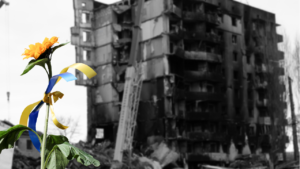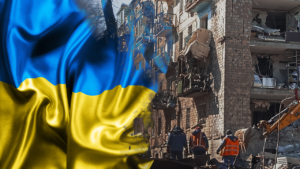The triple curses of most African nations (corruption, poverty & disease) have kept the dark continent dark and part what Tom Barnett calls “The Gap.” New York Times columnist Nicholas Kristof talked about the challenges facing Equatorial Guinea — especially bad governance [“Optimism and Africa,” 03 Oct 2006]. Kristof begins by relating how bad things were in the past:
The founding president of this country was a witch doctor who murdered tens of thousands, put enemies’ heads on pikes, denounced education and spread land mines on the road out of his country to prevent people from fleeing. This was then so vile a place that an American diplomat stabbed another to death here in 1971 and claimed in his trial that he had been driven insane partly by the screams of all the people being tortured. When the president was finally ousted in 1979, he ran off into the bush with $60 million packed in suitcases. But he was pursued, and in a shootout, the nation’s entire foreign exchange reserves burned up.
Kristof notes that Equatorial Guinea has never known anything but poverty and that is because it has only been governed by bad leaders. In fact, Kristof avers, the country’s greatest challenge is:
… the need for better governance, meaning both less corruption and better economic policies. The single greatest need to fight poverty and injustice isn’t more aid, although that is needed. What matters most is the local decision makers. The single biggest reason Africa is so poor is that it has had unusually bad leadership — a reflection, in turn, of colonial misrule. Equatorial Guinea traditionally has been Africa’s poster boy for bad governance. Even after the old witch doctor was ousted, the kleptocracy continued under Teodoro Obiang, the current president.
How bad is the current regime? In a word, awful.
A new book about the country, “The Wonga Coup,” notes that in 2004 President Obiang bought a Boeing 737, one of six personal planes, for $55 million, and outfitted it with a king-sized bed and gold-plated fittings in the extra-large bathroom. Schools and clinics are needy, but Forbes lists President Obiang as the world’s eighth richest ruler, with a net worth of $600 million. Just last year, “The Wonga Coup” says, the president’s son spent the equivalent of a third of his country’s entire education budget on a vacation home in South Africa and three cars — two Bentleys and a Lamborghini.
As bad as things are, however, Kristof sounds a note of optimism as that country is beginning to take baby steps towards better governance.
Here in Equatorial Guinea, torture has diminished, and two opposition members of Parliament provide token public criticism. The government is participating in Tony Blair’s anticorruption initiative (a terrific program to help poor countries), and Prime Minister Ricardo Mangue told me that his government would begin publishing budgets to try to ensure more transparency. We should help developing countries broadly, not just by writing checks but also by holding their feet to the fire on corruption and economic reform. An excellent new U.S. aid program, the Millennium Challenge Accounts, rewards good governance, and we can do even more. For example, as Joseph Stiglitz notes in his new book, “Making Globalization Work,” the West can modify bank secrecy rules so that it is harder for dictators to pillage their lands.
With all the bad news that has come out of Africa — ethnic cleansing in Darfur, a pandemic of AIDS, war in the Central African Republic and the Congo — it’s refreshing to hear a little good news for a change. Kristof takes a tour d’horizon of Africa and sees positive changes in many places.
All across Africa, countries are increasing efforts to fight corruption and improve the investment climate. The World Bank’s latest “Doing Business” report shows that some African countries, particularly Tanzania, Ghana, Rwanda and Nigeria, are among the world leaders in reforming their economies. And where African countries have had sustained good governance, economies have boomed. Examples include Botswana, Mozambique, Rwanda and Mauritius, which in turn are becoming models for neighbors. Partly as a result, Africa is enjoying an overall economic growth rate this year of 5 to 6 percent, twice that of the U.S. And Africa now has a huge opportunity to move up the ladder into low-wage manufacturing, because Chinese labor costs are rising and some labor-intensive production is being shipped to lower-wage countries. Chinese traders are now everywhere in Africa, although they haven’t set up many factories so far. Senegal has snared a share of the French-language call-center industry, and a few countries, like Mauritius, Lesotho and Namibia, make garments, but manufacturers have generally shunned Africa because of concerns about infrastructure, political instability, corruption and ability to scale up production. If Africa plays its cards right, that could change. So, yes, Africa is still afflicted by AIDS, misery and the tyranny of “big men” whose sons squander national treasure on Lamborghinis. But leadership is improving, opportunities are appearing, and there’s something new in the air: reform, and hope.
When genuine interest is shown in making positive change, a Development-in-a-Box™ approach should be taken. These countries can’t afford to learn by trial and error. They can’t take years to develop the standards necessary to attract foreign direct investment. The developed world can help by helping them flexibly apply proven standards and processes. Here’s hoping that Kristof’s encouraging outlook is justified and that the developed world does all it can to promote good leaders and sound policies.




